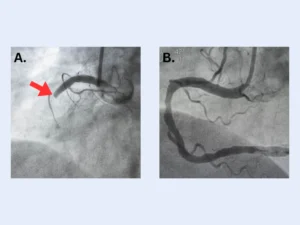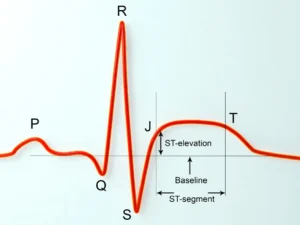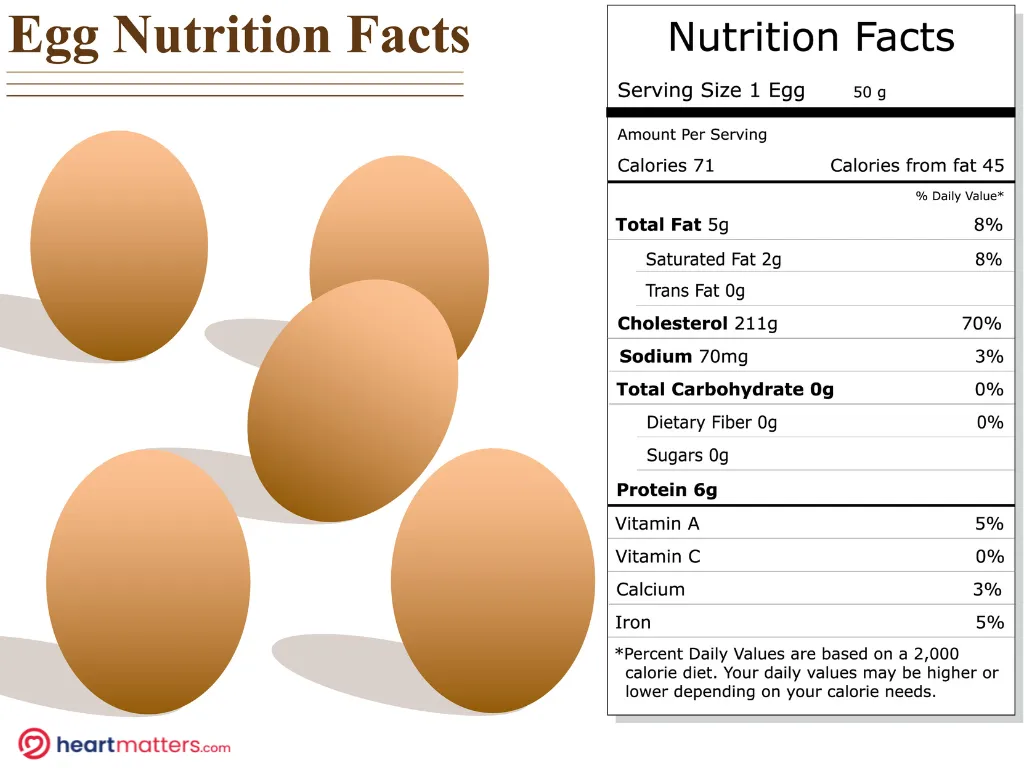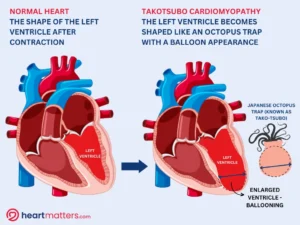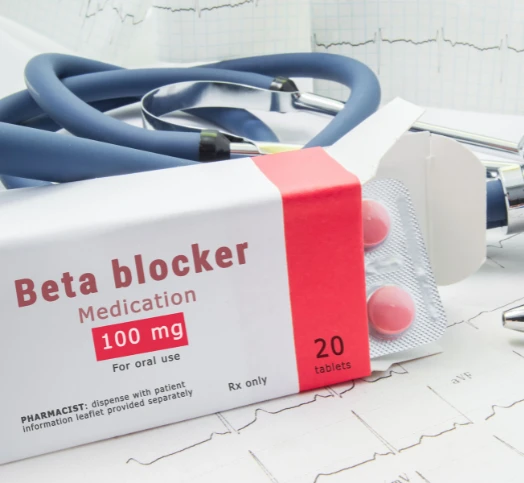One doesn’t always need strenuous workouts or complex exercise routines to pursue a healthier lifestyle. Sometimes, the simplest activities can yield remarkable benefits. Walking, an activity we often take for granted, has emerged as a powerful ally in promoting heart health. Recent data has overturned the long-held belief that 10,000 steps a day are necessary for optimal health. Instead, research suggests you can achieve significant heart health benefits with as few as 2500-4000 steps daily. In this article, we will explore the advantages of walking, including its impact on psychosocial and mental well-being and its profound effect on lowering blood pressure.
It’s important to acknowledge that walking may not be easy for everyone, especially those with arthritis, bad knees, bad hips, or obesity that limits weight-bearing activities. These limitations must be taken into consideration when recommending an exercise plan.
The Heart of the Matter: Walking and Cardiovascular Health
Walking can positively affect heart health, offering a holistic approach to cardiovascular well-being. It goes beyond the conventional notion of exercise, showing that something as simple as a daily stroll can profoundly impact your heart’s vitality. Among its numerous benefits, walking can be beneficial for:
-
Lowering Blood Pressure:
One of the standout benefits of walking is its ability to help lower blood pressure. Hypertension, or high blood pressure, is a significant risk factor for heart disease. Regular walking can substantially reduce blood pressure, even at a moderate pace. It does so by promoting better circulation, improving the elasticity of blood vessels, and enhancing the efficiency of the heart’s pumping action. This gentle yet effective exercise can benefit those seeking a non-pharmacological approach to managing their blood pressure.
-
Heart Health Beyond Numbers:
It’s not just about the numbers on the blood pressure monitor. Walking also positively influences the heart in more subtle ways. This low-impact exercise strengthens the heart muscle, making it more efficient in delivering oxygen and nutrients throughout the body. Additionally, it can help reduce levels of harmful LDL cholesterol and boost HDL cholesterol, which is heart-protective.
-
Enhancing Glycemic Control:
Walking is crucial in glycemic control, making it a valuable tool for individuals with diabetes or those at risk of developing the condition. It helps the body use insulin more effectively, leading to better blood sugar management. Consistent walking can contribute to more stable blood sugar levels, reducing the risk of diabetic complications.
-
Preservation of Muscle Mass and Tone:
Maintaining muscle mass and strength becomes increasingly important as we age, especially when dealing with chronic diseases. While not an intense resistance exercise, walking still engages multiple muscle groups. This engagement helps preserve muscle mass, preventing muscle atrophy and weakness. For individuals with chronic conditions, such as arthritis or osteoporosis, maintaining muscle tone can improve overall functional ability and quality of life.
Mind Matters: The Psychological and Mental Benefits of Walking
-
Stress Reduction:
Life can be stressful, and chronic stress can take a toll on our hearts. Walking is a natural stress reliever. It triggers the release of endorphins, the body’s natural mood elevators. Walking in nature, surrounded by greenery, can be incredibly calming and rejuvenating, further reducing stress levels.
-
Mental Clarity and Creativity:
Walking offers a break from our often sedentary and mentally taxing routines. During a walk, the mind has a chance to wander and recharge. Many people find that their most creative ideas or solutions to problems come to them during a stroll. It’s an opportunity to disconnect from screens and connect with your thoughts.
The Social Side: Psychosocial Benefits of Walking
-
Connection and Community:
Walking can be a social activity, providing an opportunity to connect with friends, family, or neighbors. Building a walking routine with others enhances motivation and strengthens social bonds. These connections can contribute to a sense of belonging and emotional well-being.
-
Boosting Self-Esteem:
Consistent walking can lead to improved physical fitness and weight management. Achieving these goals can boost self-esteem and body confidence, positively impacting psychosocial well-being.
Contrary to the previous recommendation of achieving 10,000 steps per day, a recent analysis suggests that health benefits can be obtained with as few as 2,500 to 4,000 steps per day.
What does the data tell us?
Regular physical activity, specifically walking, has significant health benefits and can reduce mortality risk. A recent meta-analysis, which combined data from 17 studies involving almost 227,000 participants, found that increasing the number of steps taken each day is associated with a decrease in all-cause mortality and cardiovascular mortality.
The analysis showed that a 1000-step increment in daily step count resulted in a 15% reduction in all-cause mortality, while a 500-step increment led to a 7% reduced risk of cardiovascular mortality. Notably, the study also found that even small increases in daily step count can be beneficial. Contrary to the previous recommendation of achieving 10,000 steps per day, the analysis suggests that health benefits can be obtained with as few as 2,500 to 4,000 steps per day.
These findings highlight the importance of physical activity in reducing the risk of death and emphasize that even small increases in daily step count can have significant health benefits. Therefore, incorporating more walking and physical activity into daily routines can improve overall health and longevity. Remember to start slowly and gradually increase your walking time and intensity. It’s also vital to wear comfortable shoes and stay hydrated.
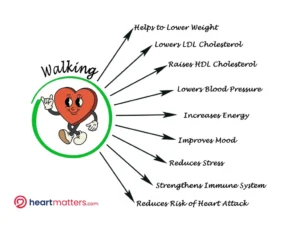
Conclusion
In the quest for better heart health and overall well-being, it’s comforting to know that one of the most accessible and straightforward exercises—walking—can be so beneficial. Recent research has shown that the traditional 10,000 steps per day may not be necessary to reap the rewards. With as few as 2,500-4,000 steps, you can significantly improve your cardiovascular health, lower blood pressure, enhance glycemic control, and maintain muscle mass and tone, particularly as you age or deal with chronic diseases. So, lace up those walking shoes and step towards a healthier heart, body, and mind.




